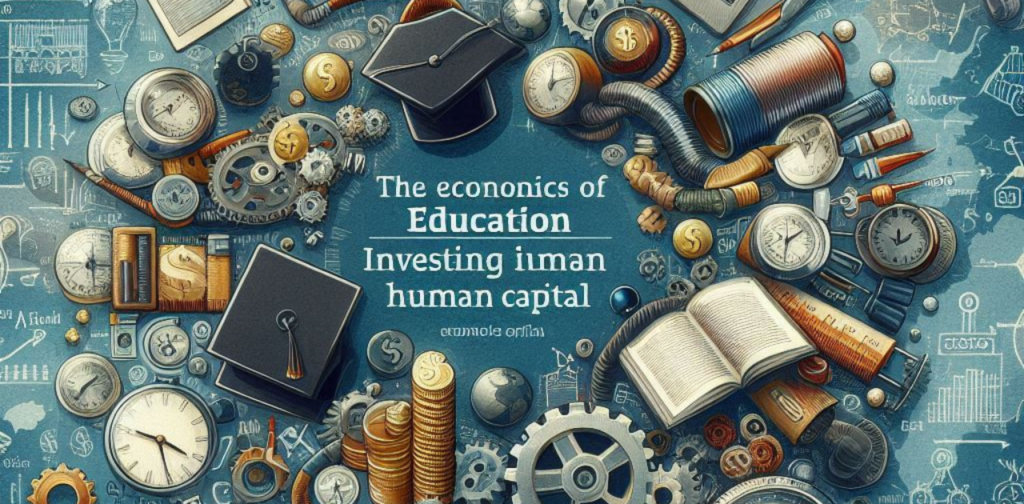The Economics of Education: Investing in Human Capital
Introduction
The economics of education, a subfield of economics, examines the economic implications of education. It explores how societies allocate resources to education, the returns on those investments, and the effects of education on economic growth and individual income. The field provides important insights to policymakers, educators, and individuals in making informed decisions about education.
Body
The economics of education

covers many topics:
- Human Capital Theory: Education as an investment in individuals that increases their productivity and earning potential.
- Educational Production Function: The relationship between educational inputs (teachers, resources) and outcomes (student achievement).
- Education and Economic Growth: Correlation between level of education and economic growth of a country.
- Educational Finance: Financing of education including public and private sources.
- Educational Inequality: Disparities in educational opportunities and outcomes based on socio-economic factors.
- Returns to Education: Economic benefits of higher education including increased income and employment rates.
Education Policy Analysis: An assessment of the economic impact of education policies and reforms.
Key Concepts in Economics of Education:
- Private returns to education: Benefits to individuals from education, such as higher income.
- Social returns to education: Benefits to society from education, such as increased productivity and innovation.
- Education as a screening device: The role of education in signaling ability and potential to employers.
- Education as a signaling mechanism: The value of education as a credential that demonstrates competence.
Table: Economic concepts in education
| concept Appreciation | Implications |
|—|—|—|
| Human Capital | Knowledge and skills acquired through education and training Investing in education increases productivity
| Education production function Relationship between input and output in education Identifying factors affecting student achievement
| A private return to education Benefits to individuals Assessing the individual benefits of education
| Social return to education Benefits to society as a whole Justifying public expenditure on education

Result
The economics of education provides a valuable framework for understanding the economic dimensions of education. By analyzing the costs and benefits of education, policymakers, educators, and individuals can make informed decisions to optimize educational investments and maximize their returns.
Frequently Asked Questions
- What is the relationship between education and economic development?
- Education is a key driver of economic growth by increasing human capital and productivity.
- How does education affect income inequality?
- Education can reduce income inequality by providing opportunities for upward mobility.
- What is the government’s role in funding education?
- Governments play an important role in financing education through taxes and subsidies.
- How does the cost of education affect access?
- High costs can limit access to education, especially for disadvantaged groups.
- What is the future of education financing?
- Increased reliance on private funding and alternative financing models is a likely trend.
The economics of education

is a dynamic field that continues to evolve as societies face new challenges and opportunities. By understanding the economic implications of education, we can make informed decisions to build a more educated and prosperous future.